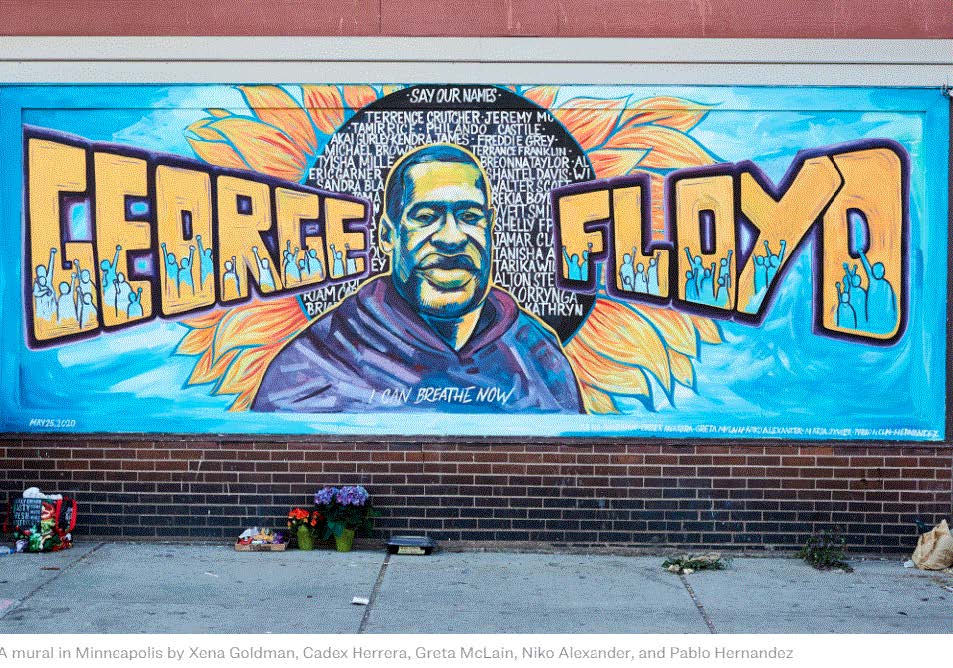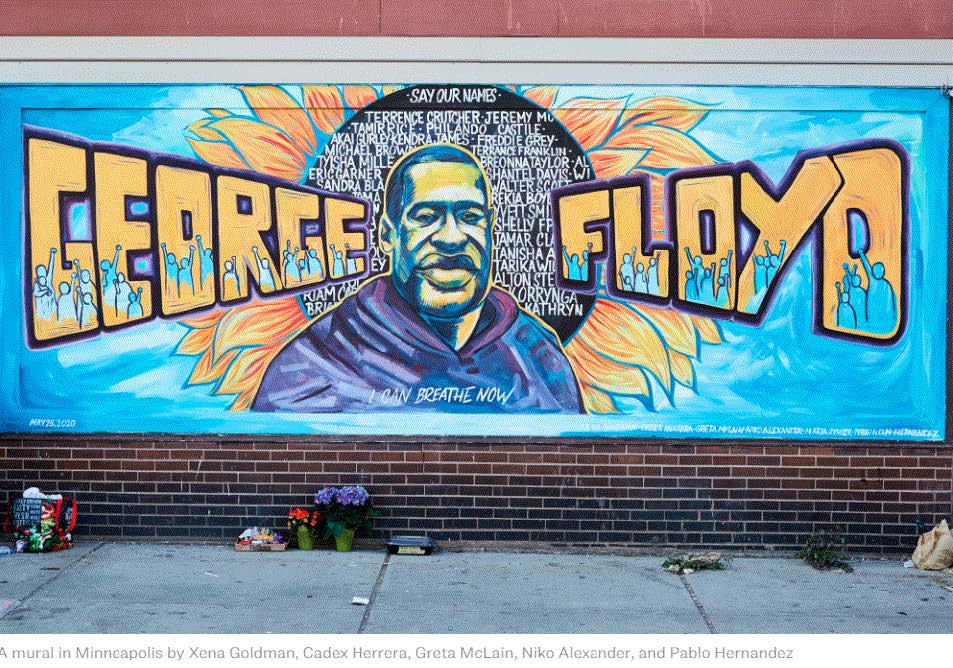Reflections On The Murder Of George Floyd

By Edwin N. Swaray
On May 28, three days after the murder of George Floyd, my son and I arrived at work at 10:00 am. My wife and I operate a private mental health clinic in the Twin Cities and our son’s the administrative manager. I headed to my office in the back and he sat at the front desk. But neither one of us was able to get anything done. I followed the news on MPR and he did the same on Facebook. Neither one of us knew the other was distracted. By midday, he came to my office and said, “Dad, can I get the day off? I’ve tried to work but I am too distracted by the news,” a look of sadness and pain in his eyes.
I took that as a cue to begin a conversation about what was transpiring. We spent time talking about the murder of George Floyd. We discussed Amy Cooper, the white women who called the police on a black man in New York, (https://www.cnn.com/videos/us/2020/05/26/central-park-video-white-woman-calls-police-black-man-orig-mrg.cnn), and Tom Austin, a white Twin Cities venture capitalist who threatened to call the cops on black business owners at the MoZaic East office building in town (https://www.buzzfeednews.com/article/ikrd/venture-capitalist-threats-black-men-gym).
My wife and I arrived in the United States from Liberia 21 years ago in search of the American Dream. Our son arrived a year later when he was 6 years old. Our son is one of the most laid-back people you will ever meet. He is kind, open-minded, keeps his emotions in check, and gets along with everyone. He graduated with a Bachelor’s in Psychology with a Neuroscience concentration from Carleton College, then attained a Master’s in Industrial and Organizational Psychology.
My son and I have had the unfortunate and frightening experience of having the police called on us. In May 2012, my son was chosen to deliver his high school commencement address at Cristo Rey Jesuit School in South Minneapolis, just two miles from where George Floyd was murdered. I was telling anyone who would listen of his accomplishments and inviting everyone to the program. A few weeks before the event, I dropped him off to play soccer at a nearby field in New Hope. A few hours later, he called to tell me that a white cashier named Christine at the CVS Pharmacy in New Hope had profiled him by insisting that he open his backpack. He had gone there to buy a drink. She claimed that lots of thefts were going on in the store and she wanted to verify that he had not stolen something. He complied – as he has been raised to do – and she found nothing in his backpack. This incident happened at the same time Trayvon Martin was murdered in Florida. My son and Trayvon were of the same age.
When I arrived, Christine justified her actions and insisted that I leave the store immediately. She proceeded to call the police. As I expressed my frustration to her, my son, then only 17 years old, was cool and calm and kept telling me, “Dad let’s go, it’s not worth it. Dad, we’ve got to get out of here.” As we drove home, I wondered if this would have turned out differently if Christine had known my son was a good boy? Or that he was a law-abiding citizen. Or that he graduated with honors. Or that he was slated to give the commencement speech in a couple of weeks. Or that he had an academic scholarship to a four-year college. Would that have mattered? I concluded it would not have.
You see, for the Christines’, the Amy Coopers’, the Tom Austins’ of the world, their perceptions of black people are warped in stereotypes. It’s almost impossible for them to see beyond a black person’s skin color. Our character is invisible to them. But what is even scarier is their historical alliance with the police. The tone of their voice, the description of what they perceived as a threat – usually a black man – is enough to weaponize the police. Fortunately, I left before the police arrived, thanks to my son’s insistence.
A few days later, I received a “no-trespassing” order instructing me to not enter the facility for a year. It’s been eight years since that day, and I have not entered that CVS Pharmacy even though I drive by it daily. As I drive by, I am reminded of the injustices and historical trauma that African Americans have dealt with for 400 years. I have been in the United States for merely 21 years, and my son and I have begun to experience our own share of trauma based on racism.





